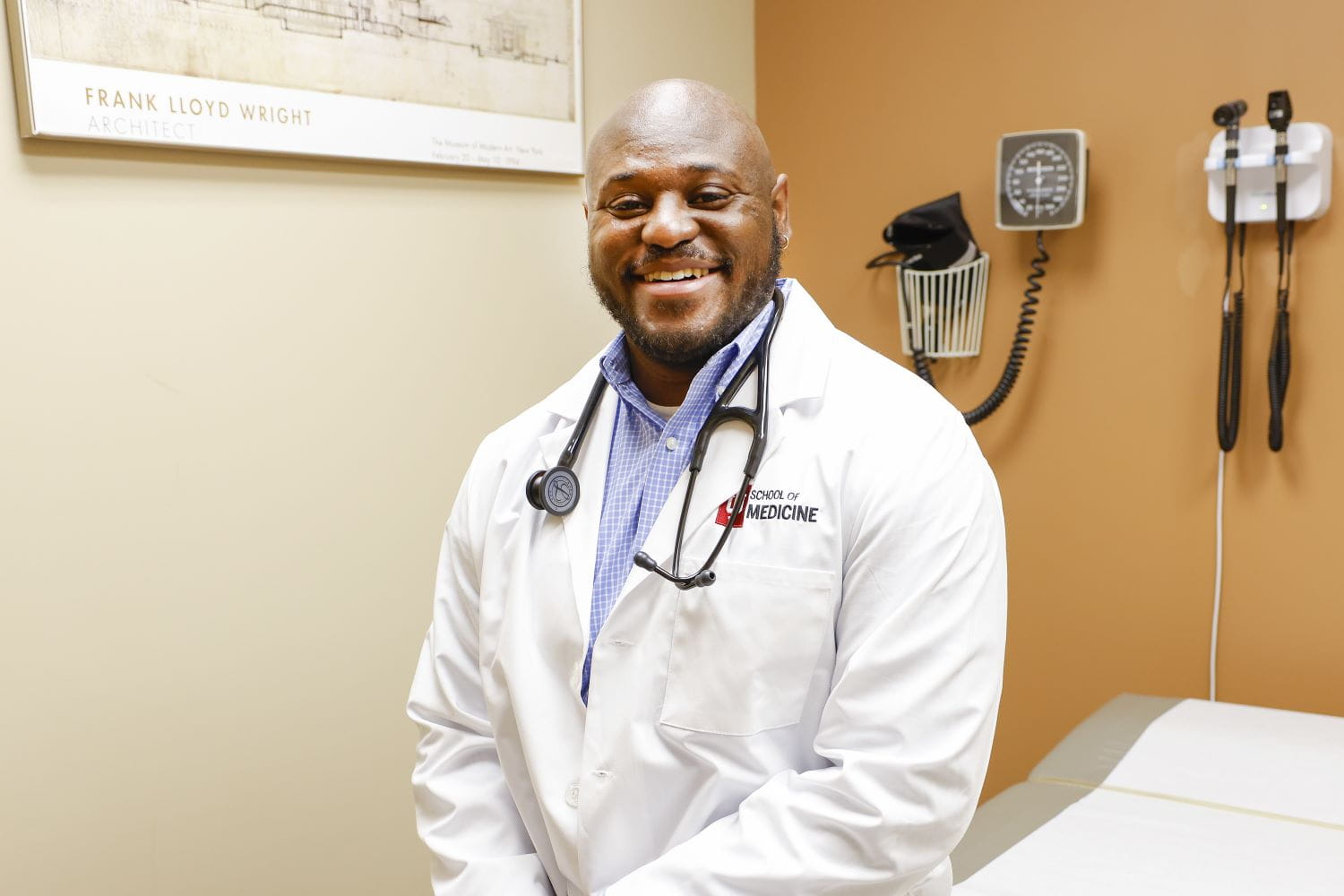
Investing in the Future: Gionté Mason Aims to Serve Urban Communities
Gionté Mason is set to graduate from the Indiana University School of Medicine in 2027.
Matthew Harris Jul 21, 2025
WHILE GIONTÉ MASON always aspired to be a physician, he didn’t immediately enroll in medical school after graduating from the University of Illinois.
Instead, he decided to see his future profession up close. “I’m a big believer in gap years,” Mason said. And the glimpse he saw turned out to be far more visceral than he could have imagined.

To start, Mason returned to his roots in Bourbonnais, Illinois, a town of 18,000 about an hour south of Chicago, with a gig as a emergency-room scribe in nearby Kankakee. Mason’s gap year also coincided with the arrival of COVID-19 in the U.S. Over the next two years, he watched as physicians of all specialties put their lives on the line to save patients.
While shifts came with stress and lingering anxiety, they also affirmed Mason’s decision and a desire for his care to uplift neighbors. “It was a very raw, real side of medicine,” he said. “You saw all walks of life. Everyone is in the same waiting room, the same rooms. It broke down barriers.”
Once the pandemic lifted, Mason relocated to the Windy City and worked as a tech for two years in the Department of Orthopedics at the University of Chicago. His takeaway? “I knew I wanted to practice some form of community medicine,” Mason said. “At UChicago, I found that I enjoyed the continuity of care and building a relationship with patients by being hands on with specialties like sports medicine and physical medicine and rehabilitation.”
Mason cast a wide net when applying to medical school but felt drawn to Indiana University due to its size, high residency placement rates, and a robust array of student support services. A trip to Indianapolis for a first look revealed another surprising facet.
“There were more Black students than I expected,” said Mason, who is set to graduate in 2027. “That was something I had in the back of my mind — I wanted to go somewhere with a diverse student community.”
The School of Medicine’s network of nine campuses also offered the possibility of proximity. Mason enrolled at the Northwest campus in Gary, putting him less than 60 miles from home. It’s also a campus with a deep commitment to urban medicine and shrinking health disparities – a focus that dovetails with Mason’s passion. “That service aspect has always been big to me,” he said. “I volunteered with youth in government, tutored in elementary schools, and worked with the Boys and Girls Club.”
Scholarship support from IU School of Medicine donors enabled Mason to keep that desire in front of mind as he prepared to start his clerkships. While he hasn’t decided which specialty track to follow, Mason wants to be a physician guided by empathy, advocacy and accessibility. He sees himself practicing in a mid-sized city, surrounded by familiar faces wherever he goes.

“Even if I can’t relate to a patient, I want to be a listening ear. I want to eliminate barriers to care,” he said. “I want to be the doctor who’s coaching T-ball, who people recognize at the grocery store.”
Robust financial aid means Mason won’t have to compromise those goals. Instead, his clerkships will offer different approaches to primary care and — ideally — the right fit. “[Having scholarship support] gave me flexibility. I don’t feel like I have to go into a high-paying specialty,” Mason said. “I can do family medicine and be part of the community.”
Matthew Harris
Matthew Harris is a communications specialist in the Office of Gift Development. Before joining the School of Medicine in 2015, he was a reporter at newspapers in Pennsylvania, Arkansas, and Louisiana. He currently lives in Indianapolis with his wife and two basset hounds.